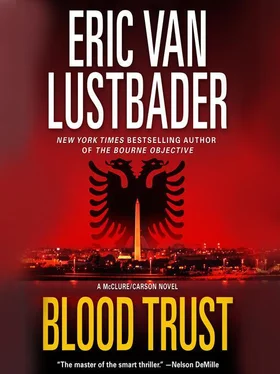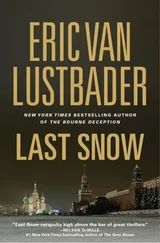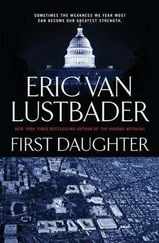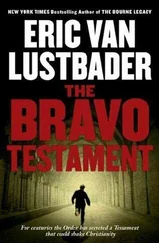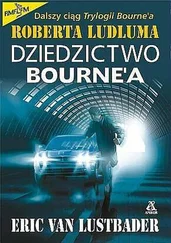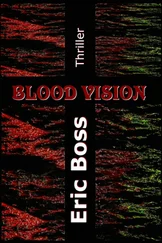“Why’d you think I’d know what this is?” asked Slim, slouched on a chair with his long legs up on a crate of Mallomars, fingering the badge Jack had handed him. They had found him in the rear of his Smoke Shop in a section of Northeast Washington so burned out it seemed an irredeemable slum. Slim seemed to like it that way. Even if this ant hill was grubby, he was king of it. Plus, the area was among the city’s most dangerous neighborhoods. That, too, was quite all right with him. The more dangerous the better. Piratically, he wore a large .45 semiautomatic stuck in the waistband of his jeans.
McKinsey’s expression darkened as soon as he noticed the handgun. “D’you have a permit for that weapon, son?”
Slim was off the chair in a flash, his Doc Martens banging loudly against the floor. “Who you calling ‘son,’ fool?”
Compounding his error, McKinsey flashed his ID. “The United States government, that’s who.”
Slim had the .45 out, the muzzle stuck in McKinsey’s face, before the agent knew what was happening. “Ain’t no United States government in this part of the world, motherfucker.”
“Easy.” Naomi held up her hands placatingly. “Let’s all stand down.”
“Tell him that,” McKinsey said in a voice that was thin and strained to the point of breaking.
“She ain’t gonna tell me, nuthin, motherfucker.” Slim cocked his head toward Naomi. “Why you bring these fools into my house, anyways?”
“We all need someone to laugh at,” Jack said, before she could answer.
There ensued a kind of stunned silence, during which McKinsey’s face turned red and Naomi’s mouth formed a tiny O. Then Slim started to laugh. He laughed so hard he could no longer keep up the pretense of being pissed off. He stepped back, slid the .45 back into his jeans, and returned to his beat-up old lounge chair.
“Fuck!” His forefinger jabbed out at Jack. “I know whys you brought this motherfucker, um-hum.”
He nodded, and then brought out a pack of rolling paper and a plastic bag of pot, deliberately, to Jack’s way of thinking, antagonizing McKinsey further. The agent stiffened and Jack saw Naomi’s hand grip his arm.
“Why don’t you go back outside and make sure we aren’t disturbed,” she said in a soft voice.
After hesitating enough to regain a modicum of self-respect, McKinsey said, “Fuck this shit,” and, shaking her off, stalked out of the shop with a gunshot bang of the front door.
“Nice fucking sonuvabitch,” Jack said, which returned Slim to a state of helpless laughter.
At length, he wiped his eyes, rolled his joint, lit up, and offered to share. They both declined.
“Straight’n’narrows, the two of you.” But it wasn’t said unkindly.
“The badge,” Jack prompted.
“The what?”
Jack pointed to the small metal object he was holding.
“Oh, you mean this? What the fuck, do I look like Sherlock-motherfucking-Holmes?” He lifted his head and hollered, “Grasi! Get your ass over here!”
A moment later, a dark-headed kid, who could not have been more than eighteen or nineteen, sauntered into the back room. His starkly corded body marked him as a gym rat. So far as Jack could see, there wasn’t an ounce of fat on him. He wasn’t muscle-bound like a lot of gym rats; rather, he’d sculpted his body to become a lean, mean, fighting machine. The normally laughable description that reminded Jack of a scene in the comedy Stripes was never more apt.
“We call him Grasi,” Slim said, “because he’s got some fuckin’ unpronounceable foreign name, don’t you, Grasi?”
Grasi grinned. He wore black jeans, custom high-tops, and an anachronistic leather vest over a white T-shirt that showed plenty of his chest. He had a ton of bling around his neck, and tattoos, most of them amateurish-looking. “Can’t buy a fucking vowel to save my life.”
Slim tossed him the octagonal badge. “You got a name for this?”
Grasi deftly caught it with his fingertips and held it up in front of his face. In almost the same motion, he tossed it back to Slim. His eyes slid sideways. “Never seen anything like it before.”
Slim sighed. “And there you have it, sports fans.” He shrugged as he handed the badge back to Jack, and said to Naomi, “I always try to be of service, but…” Again his shoulders lifted and fell.
“Thanks, anyway,” Naomi said. “It was worth a shot.”
Grasi turned to go.
“Hold on a minute,” Jack said. “Can you show me where the bathroom is?”
Grasi nodded disinterestedly, and Jack followed him out into the shop proper.
* * *
PETER MCKINSEY stood with shoulders hunched, hands thrust deep into pockets containing any number of concealed folding weapons whose honed steel both energized and soothed him. He was oblivious to the light rain or the passing vehicles. With chin jutting and lips pursed, he was sunk deep inside his thoughts.
He had met Willowicz six months into his tour of duty in the Horn of Africa. Willowicz’s name was different then, but the man was the same. McKinsey and Willowicz felt an immediate kinship, possibly because they held the same worldview. Their intense and uncompromising gung-ho attitude was nothing more than a facade beneath which existed a rich layer of nihilism. The interesting thing was that neither was conscious of this Nietzschean tendency; they would have vociferously denied it, even if confronted with the truth.
They were fearless, which meant that they were reckless in everything they did, skating along the edge of the black ice of death without ever succumbing to its embrace. They killed, maimed, tortured, and slaughtered the intractable enemy with the righteous zeal of Crusaders or priests of the Spanish Inquisition. They liked to invoke God’s name while they laughed, splashing in blood and gore, grinding guts and organs to the consistency of motor oil. Spurred on by the seemingly limitless enmity they encountered every minute of every day and night, there was nothing they wouldn’t do to their enemy to make him give up secrets out of the agony they inflicted, never thinking for a moment that these secrets might be concocted in order to end the pain. But no matter how many of the enemy they destroyed, the full measure of the satisfaction they craved never materialized. No matter how hard they tried, no matter how much pain they inflicted, they could never engender in their prey the terror they longed to see. These people were different, inhabiting an entirely different plane of existence than the Americans.
“They’re not human,” they would tell each other, over the stink of their high-minded work or, later, during bouts of heavy drinking. “If they can’t feel terror, they can’t feel any emotion. They’re for sure not human.” If it wasn’t satisfaction, it was impossible, during those sessions, to know what emotions McKinsey and Willowicz felt.
That was then. Today they were back home, in different jobs, but with precisely the same mind-set. The trouble was, neither of them could leave behind their time in the Horn of Africa. Like a malarial fever, their exploits rose into their consciousness, regular as an ocean tide, dragging with it a swath of man-made sludge: cracked skulls, congealed blood, fractured bones, and bits of gray matter. It was not enough; nothing was enough. And so the two of them existed like creatures of the dark, bloodthirsty, vampiric, unwilling or unable to readjust to a civilization hamstrung by laws that entangled the forward thrust of their urgent missions.
He didn’t like being left out of whatever was happening back inside Slim’s crap-joint, but he recognized he only had himself to blame. Seeing these people lounging around with .45s in their belts infuriated him. If he had his way, he’d fire-bomb every one of them. Fuck civil rights. People like Slim didn’t deserve to hide behind the laws that were meant to put them in the slammer. He belonged facedown in the gutter. Not for the first time, McKinsey wished he were back in the Horn of Africa.
Читать дальше
